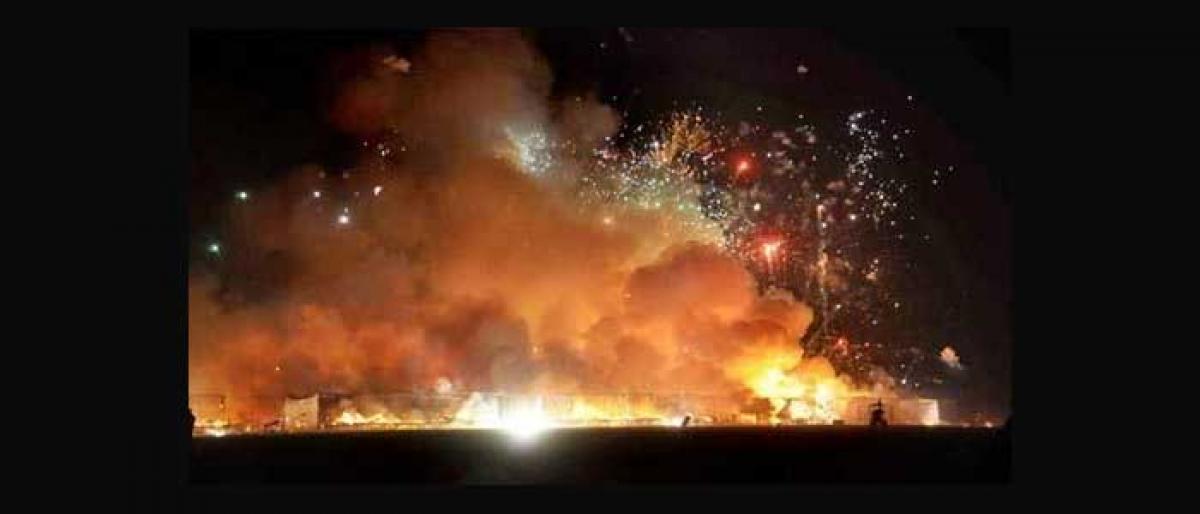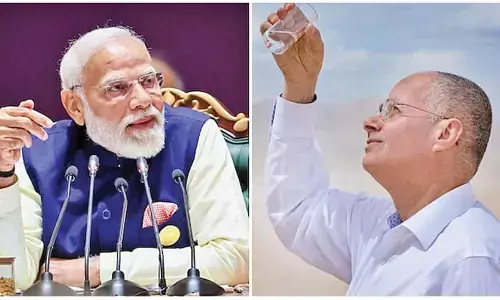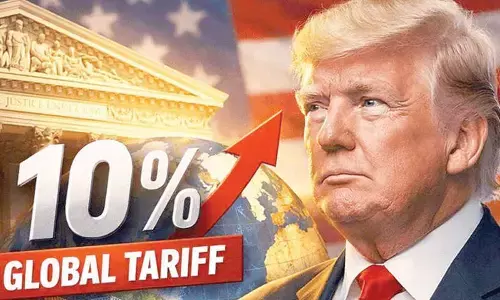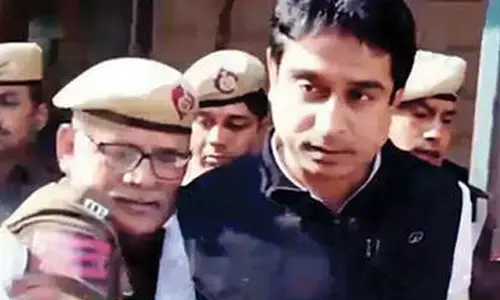Why it is a good idea to ban Diwali crackers

If there is one season that I dread every year, that is Diwali. The festival of lights is the most popular Indian celebration which is widely known across the world. Yet, the name of Diwali makes me panic because of the high decibel firecrackers that not only hit the ear like loud drum beats but also cause attendant pollution by release of chemicals and metals into the environment.
If there is one season that I dread every year, that is Diwali. The festival of lights is the most popular Indian celebration which is widely known across the world. Yet, the name of Diwali makes me panic because of the high decibel firecrackers that not only hit the ear like loud drum beats but also cause attendant pollution by release of chemicals and metals into the environment.
This severely compromises the respiratory system of even a normal individual besides adversely affecting his blood pressure and nervous system. For a severe asthmatic like me, nothing could be worse, and year after year I have to take refuge in distant places away from urban habitats or have to check into the upper floors of sealed hotels to save myself. Though I live far away from India’s capital, like many others I welcome the decision of the Supreme Court of India to ban sales of crackers in Delhi and the National Capital Region (NCR) till after Diwali.
This is the region that is affected most by air pollution. In 2016 after Diwali, Delhi’s air pollution levels stood at 29 times the permissible level specified by the WHO. Things get worse in Delhi because in early winter farmers burn their leftover crops or the waste straws in neighboring Haryana. This leads to major smog over Delhi making the capital city almost unlivable. Last year, Delhi became a living hell for 10 days after Diwali. That’s a pity because Delhi was once a nice green verdant city. Many north Indian cities like Lucknow, Kanpur and Patna are also majorly hit.
Other urban centres in India are not that bad, but things are getting worse. And therefore it is time that we begin to rectify the state of affairs before it’s too late. In this context I wish that the Supreme Court had stepped in to regulate the sale of crackers across the country.
Moreover there is a flaw in the SC ruling: it bans the sale of crackers but does not ban the use of these crackers! So, it is possible to burst crackers stored from last year or black market in crackers clandestinely and claim that they were stored from the previous year. There is also no ban on online sales of crackers and in this digital era this leaves an opening which can be exploited. It would have been great if the Supreme Court had ironed out the obvious glitches before delivering its verdict.
A day after the apex court ruling, however, the Bombay High Court also banned sales of fire crackers in urban areas in Maharashtra. This will have a limited impact. Nonetheless, it is a step in the right direction. In fact, why wait for the apex court? It is for the state governments to be concerned about public health. It is up to them to regulate the sale of firecrackers to ensure the public good.
The Maharashtra minister of environment has in fact asked people to think of the environment and give up burning crackers, while chief minister Devendra Fadnavis administered a pledge to students to observe a cracker-free Diwali. The Chhattisgarh government has taken the lead this season in a different way by banning high decibel crackers and regulating the use of other crackers.
It has also decided this year to boycott Chinese lighting and use earthen diyas and traditional material to light government buildings. Last year, the Odisha government restricted the sale of firecrackers in the capital city of Bhubaneswar by setting up designated places where it could be sold. This had a salutary effect and the eastern city saw much less pollution last year after Diwali.
Not unexpectedly there are vociferous protests from retailers in Delhi – who are left with sizeable unsold stocks – and from producers who are concentrated in the southern city of Sivakasi in Tamil Nadu. Nearly 85 per cent of India’s produce of firecrackers is from this town and an estimated 3 lakh people, many of them children, are employed in this trade. According to statistics quoted by these manufacturers (which may be exaggerated), another 5 lakh people may be engaged in packing, transporting, distributing and selling the crackers.
The livelihood of all these people will be affected, the manufacturers assert to argue why there should be no ban. Firecracker manufacturers estimate a Rs 1,000 crore loss this year – more so because of the apprehension that many states will go ahead in the coming days and ban cracker sales on the back of the apex court order. This opposition in the name of jobs being lost and economic activity being curtailed is not surprising because of the vested interest that the cracker industry has developed.
But this argument can be countered by pointing out the additional costs that society has to incur by spending more to help victims of Diwali recoup their health. It is not easy to compute this cost in financial terms but what may be noteworthy is that every breath inhaled after Diwali leads to toxins being deposited in the lungs of everyone. What is worse, toxins once deposited in the lungs of a person cannot be cleaned, say medical experts. This is unlike air pollution that may get cleaned after a few days or weeks. Thus, the price of a toxin affected lung has to be paid for a patients’ life time.
Although, the protests from traders are understandable, the protests from certain quarters that the ban is ‘anti-Hindu,’ beats logic. Those introducing a communal angle to the ban include an exalted figure like the Governor of Tripura, Tathagata Roy (whose comments that soon the Award Wapasi gang will seek ban on Hindu cremations are especially acerbic) and well-known novelist Chetan Bhagat.
The argument of these people is that why only a Hindu tradition is being banned and why there is not a similar ban on the slaughter of lambs during Id or loudspeakers blaring forth the Azaan or even celebrations during Christmas? Needless to say this is a specious argument: banning bursting of firecrackers is not tantamount to banning of Diwali.
In fact, traditionally Diwali is the festival of lights – the lights to mark the anniversary of the return of Lord Rama to Ayodhya and at a philosophical level to mark the ascendance of light over darkness (Tamaso Ma Jyotirgamaya). Bursting of crackers is in no way an integral part of Diwali which is celebrated in different ways across the country. This includes mahurat or new-year trading on the stock market and by Lakshmi Puja and Kali Puja in other parts of the country.
Cracker bursting is a recent phenomenon and so long as it was under check it was fine. But now-a-days it has gone out of control and hence the need for control. Anyway it’s a good idea to go back to eco-friendly ways of celebrating Diwali using flowers and plants for decoration.
As for those who are connecting the cracker ban to slaughter of lambs in Id, one can only point out that the ban was brought about by a petition in the court that was filed on the behalf of three children between six and fourteen months of age. So those who want lamb slaughter to be banned should approach the apex court with a petition seeking the same and try to argue their case. They should not link the matter with Diwali and crackers.







